Adherence clubs and decentralized medication delivery to support patient retention and sustained viral suppression in care: Results from a cluster-randomized evaluation of differentiated ART delivery models in South Africa
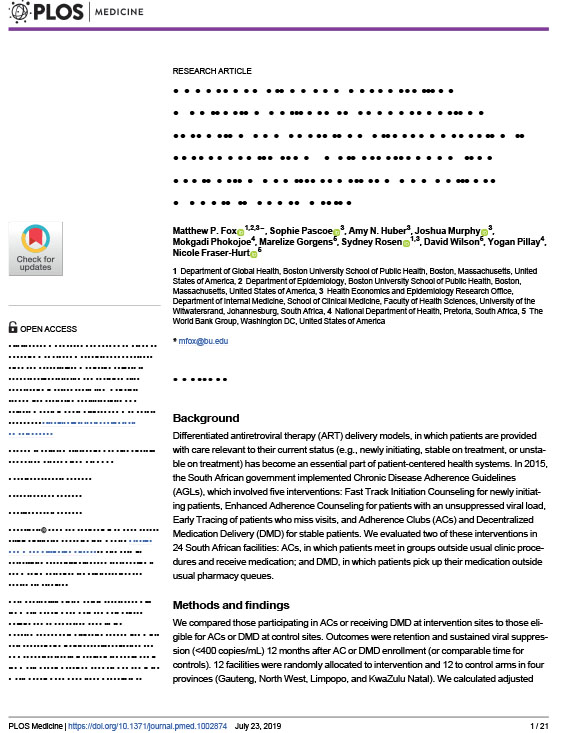
Background Differentiated antiretroviral therapy (ART) delivery models, in which patients are provided with care relevant to their current status (e.g., newly initiating, stable on treatment, or unstable on treatment) has become an essential part of patient-centered health systems. In 2015, the South African government implemented Chronic Disease Adherence Guidelines (AGLs), which involved five interventions: Fast […]
“Khotla Bophelong Bo Botle”: a gathering of men for health
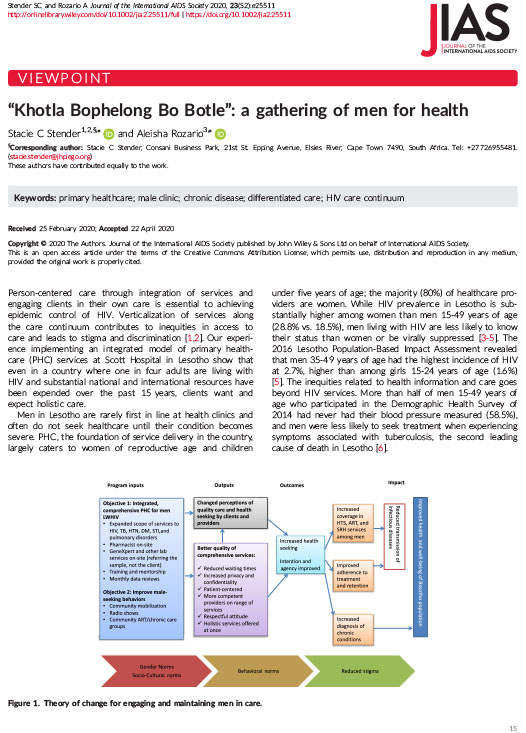
Person‐centered care through integration of services and engaging clients in their own care is essential to achieving epidemic control of HIV. Verticalization of services along the care continuum contributes to inequities in access to care and leads to stigma and discrimination. Our experience implementing an integrated model of primary healthcare (PHC) services at Scott Hospital […]
An implementation study of oral and blood-based HIV self-testing and linkage to care among men in rural and peri-urban KwaZulu-Natal, South Africa
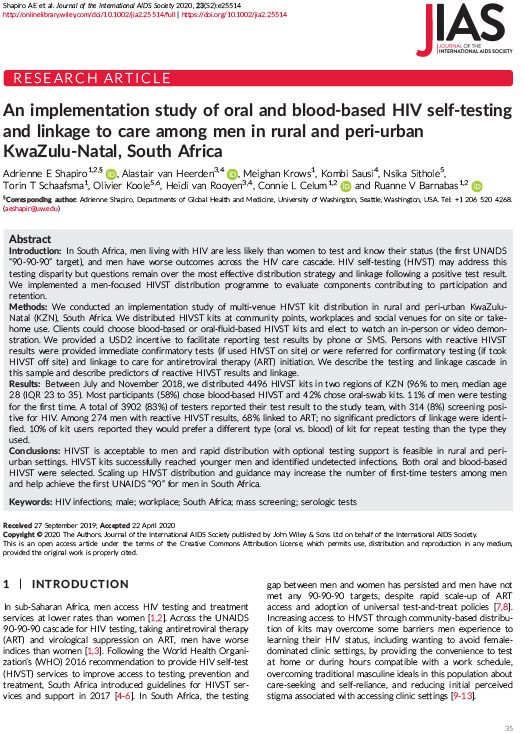
Introduction In South Africa, HIV-infected men are less likely than women to test and know their status (the first UNAIDS “90-90-90” target), and men have worse outcomes across the HIV care cascade. HIV self-testing (HIVST) may address this testing disparity but questions remain over the most effective distribution strategy and linkage following a positive test […]
Population-wide differentials in HIV service access and outcomes in the Western Cape for men as compared to women, South Africa: 2008 to 2018: a cohort analysis
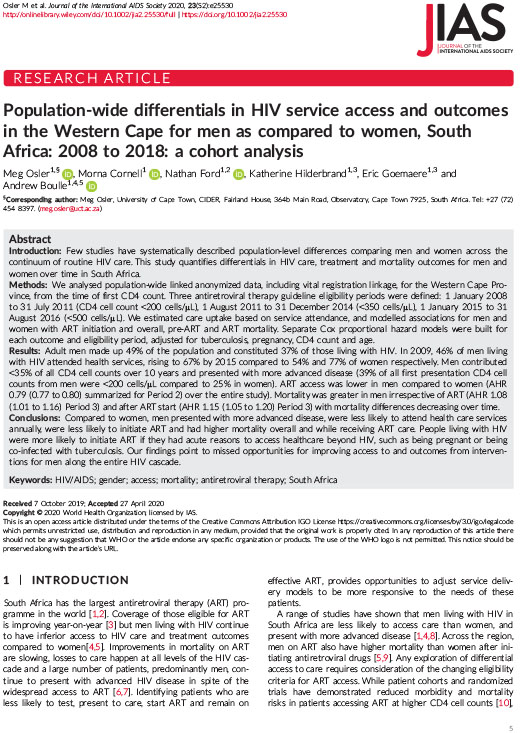
Introduction Few studies have systematically described population-level differences comparing men and women across the continuum of routine HIV care. This study quantifies differentials in HIV care, treatment and mortality outcomes for men and women over time in South Africa. Methods We analysed population-wide linked anonymized data, including vital registration linkage, for the Western Cape Province, […]
Index and targeted community-based testing to optimize HIV case finding and ART linkage among men in Zambia
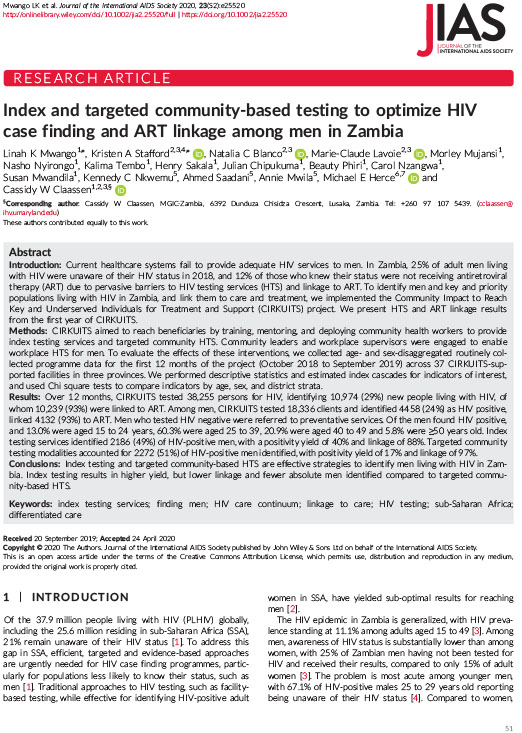
Introduction Current healthcare systems fail to provide adequate HIV services to men. In Zambia, 25% of adult men living with HIV were unaware of their HIV status in 2018, and 12% of those who were unaware of their HIV statu were not receiving antiretroviral therapy (ART) due to pervasive barriers to HIV testing services (HTS) […]
Shifting the narrative: from “the missing men” to “we are missing the men”
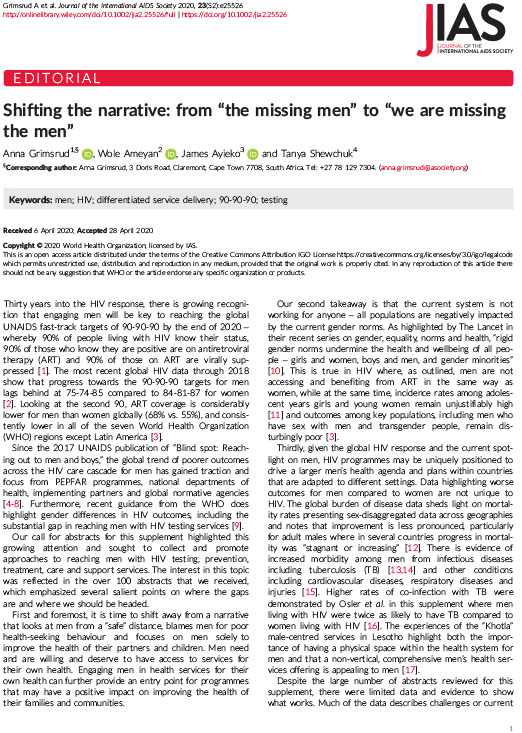
Thirty years into the HIV response, there is growing recognition that engaging men will be key to reaching the global UNAIDS fast‐track targets of 90‐90‐90 by the end of 2020 – whereby 90% of people living with HIV know their status, 90% of those who know they are positive are on antiretroviral therapy (ART) and […]
Same-day antiretroviral therapy is associated with increased loss to follow-up in South African public health facilities: a prospective cohort study of patients diagnosed with HIV
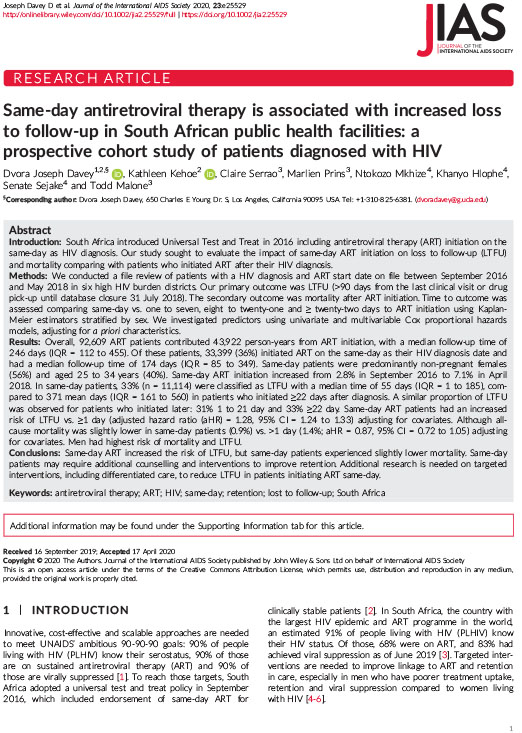
Introduction South Africa introduced Universal Test and Treat in 2016 including antiretroviral therapy (ART) initiation on the same-day as HIV diagnosis. Our study sought to evaluate the impact of same-day ART initiation on loss to follow-up (LTFU) and mortality comparing with patients who initiated ART after their HIV diagnosis. Methods We conducted a file review […]
HIV prevalence, testing and treatment among men who have sex with men through engagement in virtual sexual networks in Kenya: a cross-sectional bio-behavioural study
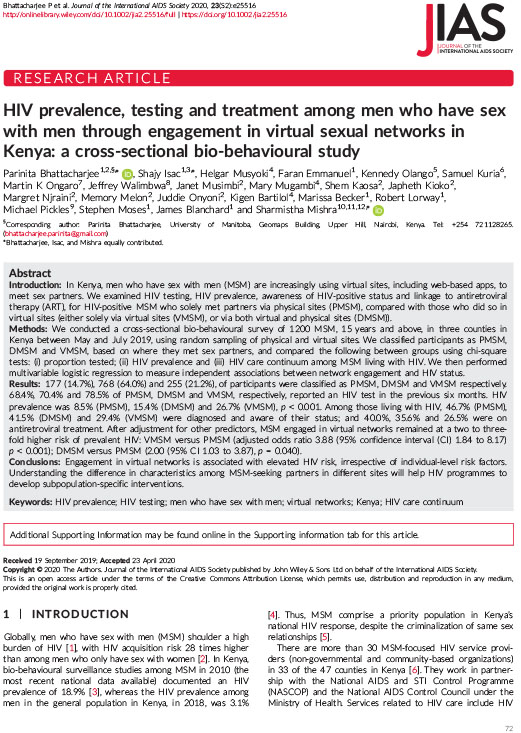
Introduction In Kenya, men who have sex with men (MSM) are increasingly using virtual sites, including web-based apps, to meet sex partners. We examined HIV testing, HIV prevalence, awareness of HIV-positive status and linkage to antiretroviral therapy (ART), for HIV-positive MSM who solely met partners via physical sites (PMSM), compared with those who did so […]
Lottery incentives have short-term impact on ART initiation among men: results from a randomized pilot study
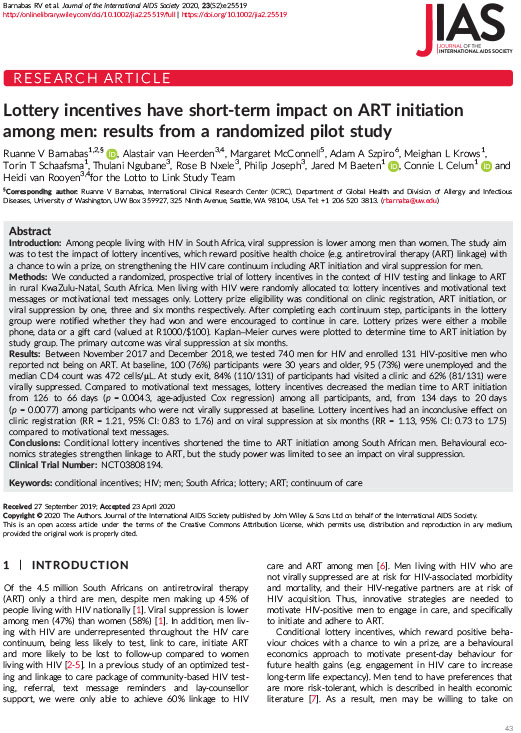
Introduction Among people living with HIV in South Africa, viral suppression is lower among men than women. The study aim was to test the impact of lottery incentives, which reward positive health choice (e.g. antiretroviral therapy (ART) linkage) with a chance to win a prize, on strengthening the HIV care continuum including ART initiation and […]
Briefing on men’s health for WHO gender, equity and human rights unit
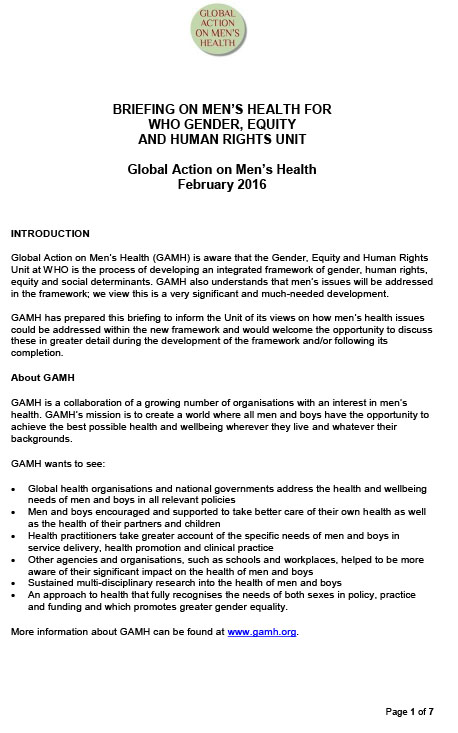
Global Action on Men’s Health (GAMH) is aware that the Gender, Equity and Human Rights Unit at WHO is the process of developing an integrated framework of gender, human rights, equity and social determinants. GAMH also understands that men’s issues will be addressed in the framework; we view this is a very significant and much-needed […]


